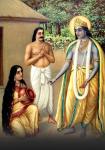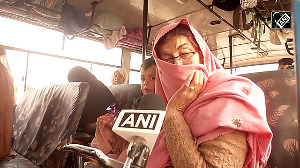For few athletes at this year's Games does the ideal of the Olympic Truce carry such emotional resonance as the Iraqis, who arrived on Monday saying their efforts in Athens might just prompt a ceasefire back home.
"It is possible," said Tiras Odisho, a senior official in the 48-strong delegation. "Iraqis are very sports minded."
 "During great soccer matches, you don't have any firing in the Iraq capital until the end of the match," Odisho added, referring to the celebratory fusillades traditional after victory. "There just might be a ceasefire."
"During great soccer matches, you don't have any firing in the Iraq capital until the end of the match," Odisho added, referring to the celebratory fusillades traditional after victory. "There just might be a ceasefire."
The Olympic Truce is almost as old as the ancient games themselves, dating back 3,000 years to a time when warring Greek kings signed an agreement that would allow athletes, their families and pilgrims to participate in the events.
Revived by the modern Games' organisers in 1992 and endorsed by the United Nations, the Truce is a cornerstone of the Olympic ideal. Once again appeals for peace during the two-week Athens Games beginning on Friday have gone out across the world.
With the hosts pouring $1.5 billion into security alone, there is little confidence the message is getting through.
Iraq's Olympic chief, Ahmed al-Samarrai, knows only too well that the Olympic aura is far from bullet-proof -- he narrowly survived an assassination attempt last month when attackers threw grenades at his car.
Yet even he is hopeful that, for 16 days at least, sport might overcome some of the hatred dividing his country.
"In general, sport in Iraq wins over all the differences in ethnic groups and religion and brings Iraqi unity," he said.
"It's almost a ceasefire ... Through sports we hope to bring security and safety and unity to the Iraqi people.
"The Iraqi people want to live with the rest of world and they get encouragement and inspiration from athletes."








